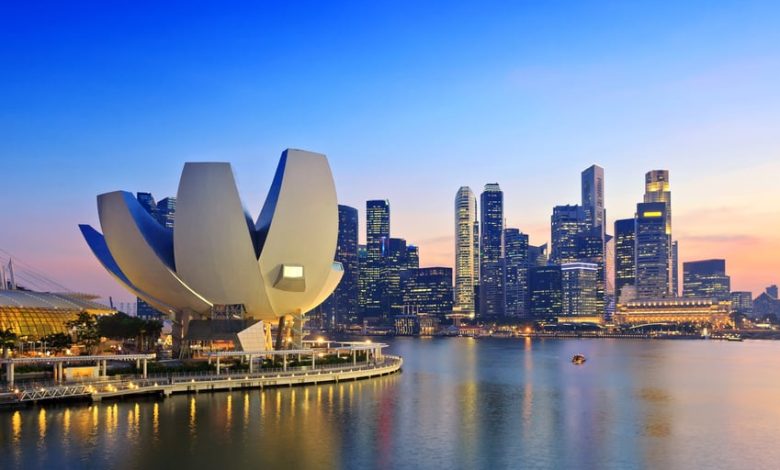Understanding Arbitrators in Singapore: A Complete Guide

Introduction to Arbitration in Singapore
Singapore has emerged as a global hub for arbitration due to its strategic location, strong legal framework, and commitment to international best practices. As an alternative dispute resolution (ADR) mechanism, arbitration offers parties a private and efficient way to resolve commercial conflicts. In this context, arbitrators play a pivotal role. These neutral third parties are responsible for overseeing disputes and delivering binding decisions known as arbitral awards. This article delves into the role of arbitrator singapore, the arbitration process, the legal framework, and why the city-state is a preferred seat for arbitration worldwide.
The Role of an Arbitrator in Dispute Resolution
An arbitrator is a neutral and independent individual selected by the disputing parties or appointed by an institution to adjudicate a dispute. Unlike judges in a courtroom, arbitrators do not represent the state. Their authority is derived from the arbitration agreement between the parties. In Singapore, arbitrators are expected to maintain impartiality and ensure that proceedings are conducted fairly, efficiently, and in accordance with the law.
The primary function of an arbitrator is to listen to the evidence, consider the submissions made by each party, and render an enforceable award. Arbitrators may also manage procedural matters such as scheduling hearings, issuing interim orders, and overseeing document exchange between parties. Their decisions are final and binding, making them central to the arbitration process.
The Legal Framework Governing Arbitration in Singapore
Singapore’s arbitration system is governed primarily by two statutes. The Arbitration Act (AA) applies to domestic arbitrations, while the International Arbitration Act (IAA) governs international arbitrations. The IAA incorporates the UNCITRAL Model Law, which ensures that Singapore’s arbitration regime aligns with international standards.
The judiciary in Singapore is known for its pro-arbitration stance. Courts generally refrain from interfering with arbitral proceedings, unless there are compelling reasons such as fraud, procedural unfairness, or breach of public policy. This judicial attitude contributes significantly to Singapore’s credibility as a reliable arbitration venue.
Moreover, Singapore is a signatory to the New York Convention, which allows arbitral awards issued in Singapore to be recognized and enforced in over 170 countries. This global enforceability is a key advantage for parties engaged in cross-border trade and investments.
Institutions Supporting Arbitration in Singapore
Singapore is home to some of the world’s leading arbitration institutions. The Singapore International Arbitration Centre (SIAC) is one of the most prominent and widely used arbitral bodies globally. It offers a robust set of arbitration rules, an experienced panel of arbitrators, and state-of-the-art facilities.
Another important institution is the Singapore International Mediation Centre (SIMC), which provides mediation services that can be integrated with arbitration through the Arb-Med-Arb protocol. The Singapore International Commercial Court (SICC) also plays a complementary role by handling complex international commercial cases that might otherwise proceed to arbitration.
These institutions enhance the professionalism and efficiency of dispute resolution in Singapore and attract multinational corporations seeking neutral and effective mechanisms for resolving their business disputes.
Qualifications and Selection of Arbitrators in Singapore
Arbitrators in Singapore come from diverse backgrounds, including law, engineering, finance, and construction. While legal training is common, it is not a prerequisite unless the arbitration requires a deep understanding of legal principles. More important is the arbitrator’s knowledge of the subject matter, their experience in dispute resolution, and their ability to conduct hearings fairly and efficiently.
Arbitrators can be appointed by the parties involved, by mutual agreement, or through institutional mechanisms such as SIAC’s appointment process. Parties typically consider several factors when selecting an arbitrator, including neutrality, experience in the relevant industry, language skills, and reputation for integrity.
To support quality and professionalism, several organizations in Singapore offer accreditation and training for arbitrators. For example, the Singapore Institute of Arbitrators (SIArb) and the Chartered Institute of Arbitrators (CIArb) offer certification programs, continuing education, and professional networking opportunities.
Advantages of Choosing Arbitration in Singapore
One of the biggest reasons why businesses opt for arbitration in Singapore is the neutrality and impartiality of the process. The arbitrators, who are either selected by the parties or appointed through an independent institution, ensure that no party feels disadvantaged due to national or legal bias.
Another significant advantage is confidentiality. Unlike court proceedings, arbitration hearings in Singapore are private, and the details of the case are not disclosed publicly unless required for enforcement purposes. This confidentiality is highly valued in commercial disputes, where sensitive information such as trade secrets, financial data, and strategic plans may be involved.
Speed and flexibility are also major attractions. Arbitration procedures can be tailored to suit the needs of the parties, and hearings can be scheduled at convenient times. Furthermore, parties can agree on the procedural rules, seat of arbitration, language, and even the governing law.
Enforceability is another strong point. Arbitral awards made in Singapore are enforceable in most countries, thanks to Singapore’s adherence to the New York Convention. This international enforceability is especially crucial for cross-border transactions and disputes.
Challenges Faced by Arbitrators and Parties
Despite the many benefits, arbitration in Singapore is not without challenges. One of the most cited issues is cost. While arbitration can be more efficient than litigation in some cases, it can also be expensive, especially when international arbitrators and expert witnesses are involved. Costs can escalate further if the arbitration drags on or if one party engages in delay tactics.
Another challenge is enforcement, particularly when a losing party refuses to comply with the award. While Singapore courts facilitate enforcement, recognition of awards in some jurisdictions may still face obstacles, especially if local courts interpret public policy exceptions broadly.
There’s also the question of arbitrator availability and overbooking. Leading arbitrators often serve on multiple panels simultaneously, which may lead to delays in proceedings. To mitigate such issues, institutions like SIAC now promote transparency in arbitrator disclosures and encourage parties to consider new and emerging professionals in the field.
The Future of Arbitration and Arbitrators in Singapore
As global commerce continues to grow in complexity and scale, arbitration in Singapore is expected to play an even more prominent role. Innovations such as virtual hearings, expedited procedures, and AI-assisted document review are transforming the arbitration landscape, offering faster and more efficient ways to resolve disputes.
The Singapore government continues to invest in legal infrastructure, digital technologies, and international partnerships to reinforce its position as a leading arbitration hub. Initiatives such as the Singapore Convention on Mediation further underscore the country’s commitment to alternative dispute resolution.
Arbitrators will continue to evolve alongside these changes. They are likely to be expected to adopt digital tools, understand emerging fields such as crypto assets and ESG-related disputes, and uphold ethical standards in increasingly complex environments.
Conclusion
Singapore’s reputation as a premier destination for arbitration stems from its comprehensive legal framework, supportive institutions, and skilled arbitrators. Whether resolving a multi-million-dollar international contract dispute or a localized business disagreement, arbitration in Singapore offers neutrality, confidentiality, flexibility, and enforceability.
Arbitrators are at the heart of this system. Their expertise, integrity, and judgment ensure that disputes are resolved fairly and efficiently. As global businesses continue to prioritize effective conflict resolution, the role of arbitrators in Singapore will only grow in importance.
Whether you’re a legal practitioner, a business executive, or a policymaker, understanding the function and value of arbitrators in Singapore can provide strategic insights into navigating disputes in a complex international environment.








